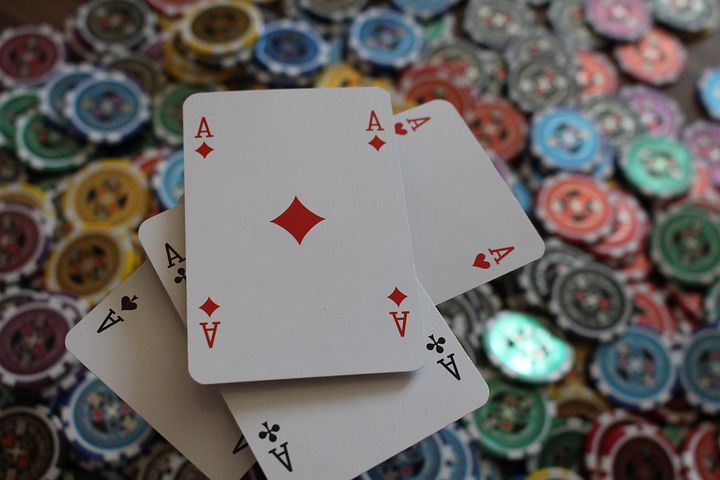
Position in poker refers to the order in which players act during a hand. It is a crucial aspect of the game as it can greatly affect a player’s decision-making process and ultimately their chances of winning. In this article, we will discuss the importance of position in poker and provide some tips on how to use it to your advantage.
The Importance of Position in Poker: How it Can Make or Break Your Game
Poker is a game of strategy, skill, and luck. One of the most important aspects of the game is position. Position refers to where you are seated at the table in relation to the dealer. It can make or break your game, and understanding its importance is crucial to becoming a successful poker player.
The position is divided into three categories: early position, middle position, and late position. Early position is the first three seats to the left of the dealer. Middle position is the next three seats, and late position is the last three seats, including the dealer. The later your position, the more information you have about your opponents’ actions, and the more control you have over the hand.
In early position, you have the least amount of information about your opponents’ hands. You have to act first, which means you have to make a decision without knowing what your opponents will do. This can be a disadvantage, and you should be cautious when playing from early position. You should only play strong hands and avoid bluffing.
In middle position, you have a little more information about your opponents’ hands. You can see how the players in early position are playing, and you can make a more informed decision. You can play a wider range of hands in middle position, but you should still be cautious.
In late position, you have the most information about your opponents’ hands. You can see how everyone else has played, and you can make a more informed decision. You can play a wider range of hands in late position, and you can also bluff more effectively.
The importance of position cannot be overstated. It can make the difference between winning and losing a hand. For example, if you have a strong hand in early position, you may raise, but if someone in late position re-raises, you may have to fold. If you had been in late position, you would have known that someone else had a strong hand and could have avoided losing chips.
Here are some tips for playing in different positions:
Early position: Only play strong hands, such as pairs, high cards, and suited connectors. Avoid bluffing, as you have the least amount of information about your opponents’ hands.
Middle position: You can play a wider range of hands, but still be cautious. You can also consider bluffing if you think it will be effective.
Late position: You can play a wider range of hands, including weaker hands, such as suited cards and small pairs. You can also bluff more effectively, as you have the most information about your opponents’ hands.
In addition to position, it’s important to pay attention to your opponents’ actions. If someone is consistently raising, they may have a strong hand. If someone is consistently folding, they may have a weak hand. Use this information to your advantage and adjust your play accordingly.
Position is a crucial aspect of poker. It can make or break your game, and understanding its importance is crucial to becoming a successful poker player. Remember to play cautiously in early position, play a wider range of hands in middle position, and take advantage of your position in late position. Pay attention to your opponents’ actions and adjust your play accordingly. With practice and experience, you can become a master of position in poker.
Mastering Position in Poker: Tips and Strategies for Success
1. Pay Attention to Your Position
The first step to mastering position in poker is to pay attention to where you are seated at the table. You should always be aware of your position and how it affects your decisions. If you are in an early position, you should be more cautious and only play strong hands. If you are in a later position, you can be more aggressive and play a wider range of hands.
2. Use Your Position to Your Advantage
Once you are aware of your position, you can use it to your advantage. If you are in a later position, you can bluff more often and steal pots from your opponents. If you are in an earlier position, you should be more cautious and only play strong hands.
3. Watch Your Opponents
Another important tip for mastering position in poker is to watch your opponents. You should pay attention to how they are playing and adjust your strategy accordingly. If you notice that a player is playing aggressively, you should be more cautious when playing against them. If you notice that a player is playing passively, you can be more aggressive and try to take advantage of their weakness.
4. Be Patient
Patience is key when it comes to mastering position in poker. You should wait for the right opportunities to play your hands and not get too aggressive too quickly. If you are in an early position, you should be patient and wait for strong hands before playing. If you are in a later position, you can be more patient and wait for your opponents to make mistakes.
5. Practice, Practice, Practice
Finally, the best way to master position in poker is to practice. You should play as much as possible and try out different strategies to see what works best for you. You can also watch videos and read books to learn more about position and how to use it to your advantage.
Position is an important aspect of poker that can have a significant impact on your chances of winning. By paying attention to your position, using it to your advantage, watching your opponents, being patient, and practicing, you can master position in poker and increase your chances of success. Remember, poker is a game of strategy, skill, and luck, and mastering position is just one of the many strategies you can use to improve your game.
The Role of Position in Different Poker Variants: A Comprehensive Guide
Texas Hold’em
Texas Hold’em is the most popular poker variant played today. In this game, position is crucial. The dealer button rotates clockwise around the table after each hand. The two players to the left of the dealer are required to post the small blind and big blind, respectively. The player to the left of the big blind is the first to act pre-flop.
Being in late position in Texas Hold’em is advantageous because you get to see what your opponents do before you have to act. This allows you to make more informed decisions about whether to call, raise, or fold. If you are in early position, you have to act before you know what your opponents are going to do. This can put you at a disadvantage.
One of the best tips for playing Texas Hold’em is to play tight in early position and loosen up in late position. This means that you should only play premium hands like pocket aces, kings, and queens in early position. In late position, you can play a wider range of hands because you have more information about what your opponents are doing.
Omaha
Omaha is another popular poker variant that is similar to Texas Hold’em. In Omaha, each player is dealt four cards instead of two. However, players must use two of their four cards to make their final hand. The position is just as important in Omaha as it is in Texas Hold’em.
One of the biggest mistakes that players make in Omaha is playing too many hands from early position. This is because they have four cards instead of two, so they think they have more opportunities to make a good hand. However, playing too many hands from early position can be costly because you don’t have enough information about what your opponents are doing.
The best tip for playing Omaha is to play tight in early position and loosen up in late position, just like in Texas Hold’em. However, you should also pay attention to the strength of your starting hand. In Omaha, you need to have a hand that has the potential to make a strong hand on the flop, turn, or river.
Seven-Card Stud
Seven-Card Stud is a classic poker variant that is not as popular as Texas Hold’em or Omaha. In Seven-Card Stud, each player is dealt seven cards, but only the best five-card hand wins. The position is still important in Seven-Card Stud, but it works differently than in Texas Hold’em and Omaha.
In Seven-Card Stud, the player with the highest-ranking card showing is required to bet first. This means that the player in early position changes from hand to hand. However, being in late position is still advantageous because you get to see what your opponents do before you have to act.
The best tip for playing Seven-Card Stud is to pay attention to the cards that your opponents are showing. This can give you valuable information about what kind of hand they have. You should also be aware of the cards that have already been folded because this can affect the odds of getting the cards you need to make a strong hand.
Position is an important aspect of poker that can have a significant impact on your chances of winning. In Texas Hold’em and Omaha, being in late position is advantageous because you get to see what your opponents do before you have to act. In Seven-Card Stud, the player with the highest-ranking card showing is required to bet first, but being in late position is still advantageous. The best tip for playing any poker variant is to play tight in early position and loosen up in late position. By following these tips, you can use position to your advantage and increase your chances of winning.
Positional Awareness: How to Read Your Opponents Based on Their Position
Reading your opponents based on their position is an essential skill in poker. Here are some tips on how to do it:
1. Pay Attention to Their Betting Patterns
One of the best ways to read your opponents is to pay attention to their betting patterns. If a player consistently bets when they are in a later position, it could mean that they have a strong hand. On the other hand, if a player only bets when they are in an early position, it could mean that they have a weak hand.
2. Look for Tells
Tells are physical or verbal cues that can give you information about your opponents’ hands. For example, if a player looks nervous when they are in a later position, it could mean that they have a weak hand. If a player looks confident when they are in an early position, it could mean that they have a strong hand.
3. Consider Their Range
Range refers to the types of hands that your opponents are likely to have based on their position. For example, if a player is in a later position, they are more likely to have a wider range of hands because they have more information about the other players’ actions. On the other hand, if a player is in an early position, they are more likely to have a narrower range of hands because they have less information.
4. Watch for Bluffs
Bluffing is a common strategy in poker. Players will often try to bluff their opponents by making them think that they have a strong hand when they actually have a weak hand. If a player is in a later position and they make a large bet, it could be a bluff. On the other hand, if a player is in an early position and they make a large bet, it could mean that they have a strong hand.
Positional awareness is an essential skill in poker. By understanding the importance of position and learning how to read your opponents based on their position, you can improve your chances of winning. Remember to pay attention to your opponents’ betting patterns, look for tells, consider their range, and watch for bluffs. With practice and patience, you can become a skilled poker player who knows how to use position to their advantage.
Common Mistakes to Avoid When Playing from Different Positions in Poker
Now that you know how important position is, we’ll talk about some common mistakes to avoid when playing from different positions in poker. One mistake that many players make is playing too many hands from early position. Since you have very little information about the other players’ hands, it’s important to be selective about the hands you play. Avoid playing weak hands like 7-2 offsuit, and focus on playing strong hands like pocket pairs and suited connectors.
Another mistake to avoid is playing too passively from late position. Since you have a lot of information about the other players’ hands, you should be more aggressive in your betting. Don’t be afraid to raise or re-raise if you think you have the best hand, and try to take control of the pot.
Finally, let’s talk about some tips for playing from each position. If you’re in early position, focus on playing strong hands and avoid playing weak hands. If you do decide to play a weaker hand, be prepared to fold if you face a lot of action from the other players.
If you’re in middle position, you have a little more information about the other players’ hands, but you still need to be selective about the hands you play. Focus on playing hands that have the potential to make strong hands on the flop, like suited connectors and small pocket pairs.
If you’re in late position, you have the most information about the other players’ hands, so you should be more aggressive in your betting. Look for opportunities to steal the blinds or make a big bet when you think you have the best hand.
In conclusion, position is a crucial factor in poker, and it’s important to understand how to play from different positions in order to maximize your success. Avoid common mistakes like playing too many hands from early position or playing too passively from late position, and follow these tips for playing from each position. With practice and experience, you’ll be able to use your position to your advantage and become a more successful poker player.
 Skip to content
Skip to content





